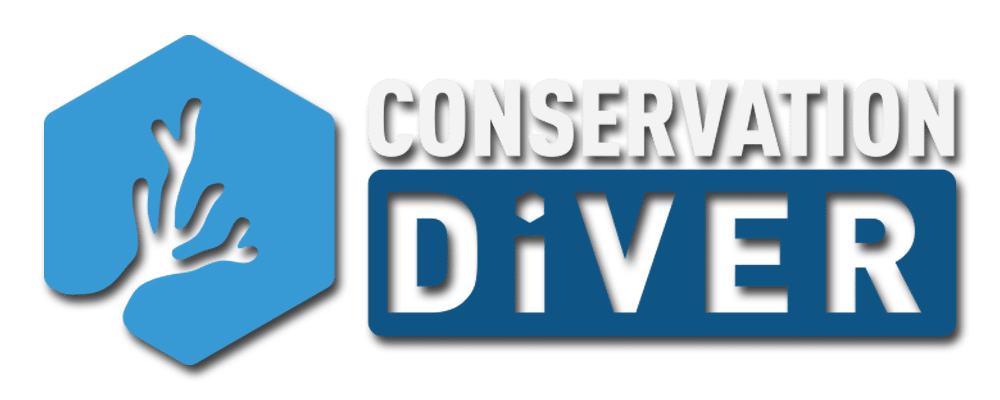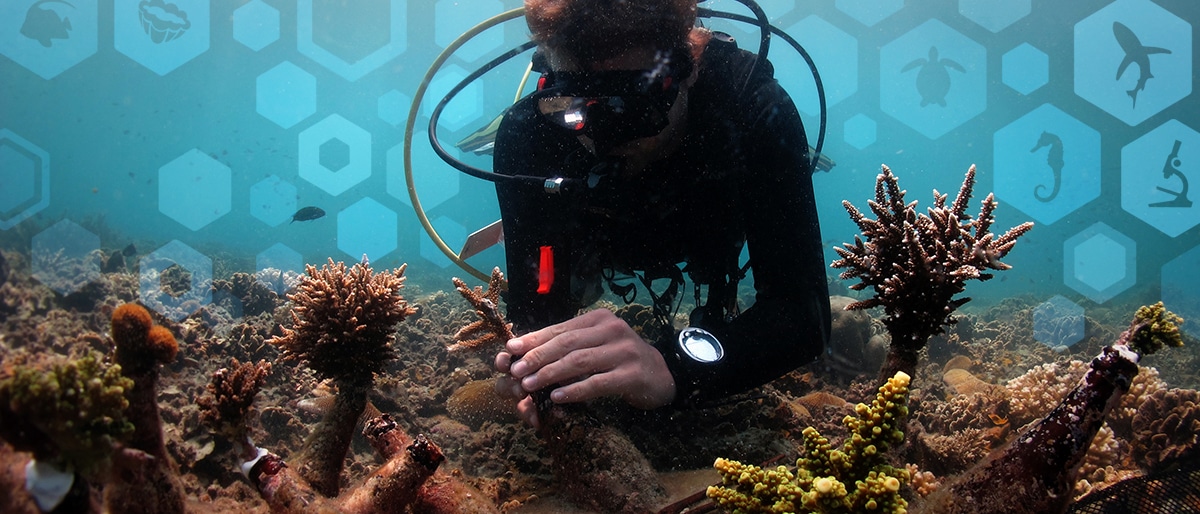Coral Reef Quiz Game
Due to the current outbreak of COVID-19, we know that many kids are stuck at home, and many parents are stuck trying to come up with fun and education activities for them. Well, we are here to help here is a fun TV game show style quiz that you can enjoy with the whole family. To get started:
1) Get your family together, and designate one person as the hist and the rest as participants
2) Give each participant a score card
3) Click on this link to download the game, click "Open in Google Sheets" or download and open with powerpoint. Click "start slideshow" ( or F5 on your keyboard)
4) Decide who starts. they will select a column and a value, like in Jeopardy
5) The 'host' will read the question allowed, and the participant will guess the answer.
6) Click to advance to the answer
7) If the answer was guessed correctly, then the participant gets the points indicated.
8) click on the Home Screen icon in the lower right
9) Let the next participant choose a question
10) keep track of the points earned, and the person with the highest score at the end wins!
The First Global Coral Restoration Database
"Protection is always preferred over restoration."
That has been the general consensus of the scientific community regarding coral reefs for most of the last five decades. However, in our rapidly changing world, corals reefs are being depleted at an alarming rate, and thus far protective efforts have proven to be insufficient at stopping what could be a global collapse of these important ecosystems. More and more, reef managers have been implementing and developing restoration techniques in what can sometimes only be described as a last-ditch effort to preserve their local resources. There has, however, historically been a major disconnect between their efforts and the work being done by scientists and academics. This is all starting to change with the recent development of the world’s first coral restoration database, as described in a recent publication titled “Coral restoration – A systematic review of current methods, successes, failures and future directions.”
This collaborative effort aims to collect all of the disconnected works being done by universities, NGO’s, local managers, for-profit restoration companies, and individuals around the globe into a cohesive dataset that can be analyzed and used to direct future efforts. This is a major undertaking, especially since there has never been much incentive for reef mangers to publish their work in scientific journals, nor has there been much incentive for for-profit groups and those receiving funding to publish their negative results, or failures. This has led to an incalculable amount of time and resources being wasted as folks attempt to figure things out for themselves, or reinvent the wheel, and often also repeating the same mistakes. In some cases, those working to preserve the environment may also be contributing to its decline.
One of the major problems plaguing coral restoration work can be traced back to a lack of long-term monitoring, which is one of the major criticisms that this paper has brought up. According to the author’s analysis, about 60% of projects reported monitoring for no more than 18 months, with many monitoring for less than one year. However, as anybody in the field knows, pretty much anybody can get corals to grow when conditions are good, but all that work can be for nothing when the next bleaching event or disease outbreak is experienced. So, reports of greater than 70% survival after 1 year may sound great for those projects looking to get more funding, but are they truly restoring the ecosystem?
The authors of the study identified 3 main issues that currently are plaguing the coral restoration industry: “1) a lack of clear and achievable objectives, 2) a lack of appropriate and standardized monitoring and reporting and, 3) poorly designed projects in relation to stated objectives. This new database will hopefully help lead to better understanding and a more focused approach to restoration that actually addresses the issues at hand, and achieves the objectives that have been set out.”
The future potential of the database and the work being done by the project authors can help to legitimize the industry, address the lack of scientific knowledge among some local managers, and help to promote the sharing of new techniques as well as the knowledge on what techniques do not work.
We at Conservation Diver have been attempting to build a network of coral reef managers that are well trained in the current theory and science behind protection and restoration practices, and encouraging a holistic ecosystem approach to managing marine resources. That is why we are adding a new section to our website and quarterly newsletter where anybody can submit their experiences with restoration projects. This may include successes, monitoring techniques, and, most importantly, failed projects. We will disseminate this information through our networks, and also pass it on to the managers of the global database for inclusion there. Please help by looking at the suggested article outline and submitting your coral restoration story today.
Lastly, we would also like to say congratulations to our long-time colleagues and friends who were a part of this project; Ms. Margaux Hein and Mr. Nathan Cook. we are all very proud of the work you guys are doing!
You can view the full paper here.
Coral Restoration Stories
Thank you for considering to submit your restoration story to our website. We will do our best to share this with the general public and any researchers who may be interested.
Please use the following outline to set up your reef restoration article. You do not need to fill out all fields, but just do as much as you can then email to info@conservationdiver.com.
- Project Name
- Project led by (individual or group name)
- Project location (Country, Province, site)
- GPS
- Approximate project size in square meters
- Type of project (passive restoration, coral transplantation/relocation, coral gardening, artificial reef, mineral accretion device, substrate stabilization, coral nursery, etc)
- Monitoring method (number of fragments/colonies, coral growth, habitat complexity, fish abundance, etc)
- Project description
- Lessons learned
- Advice to others


